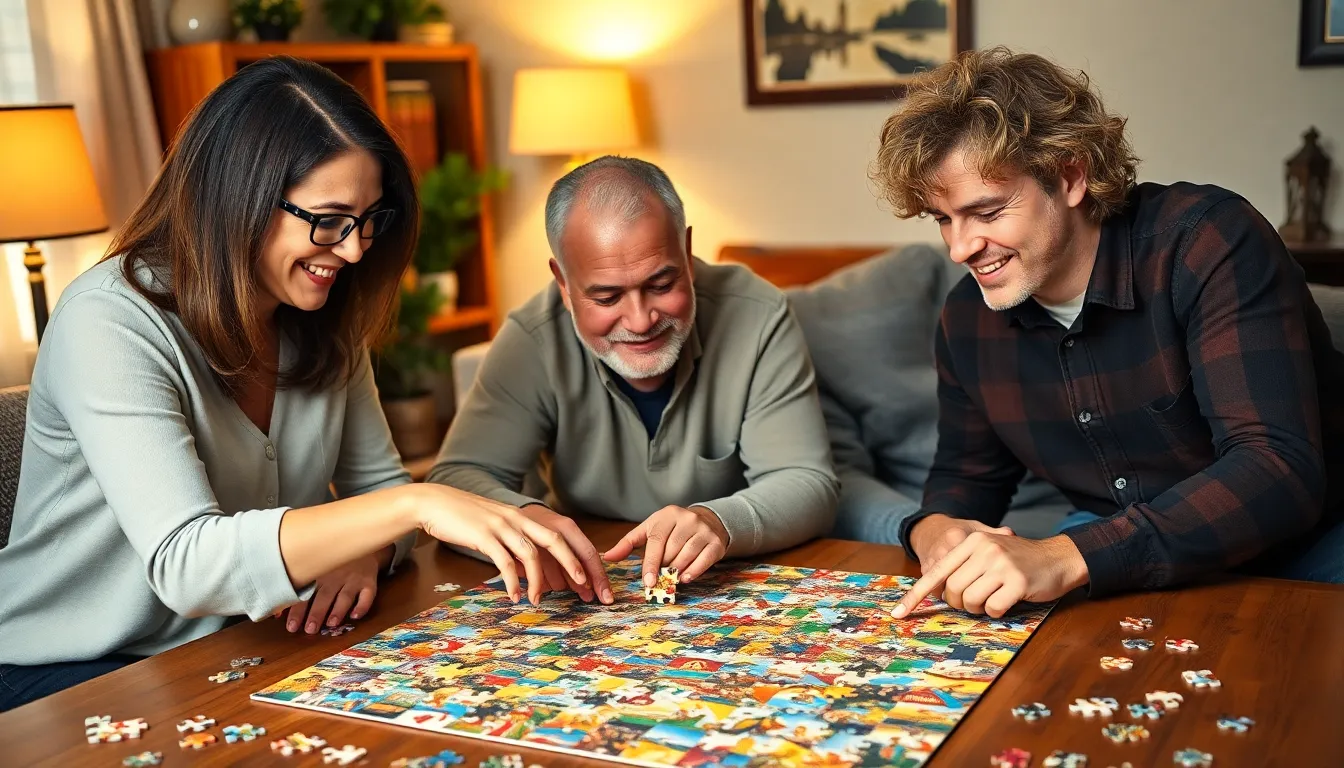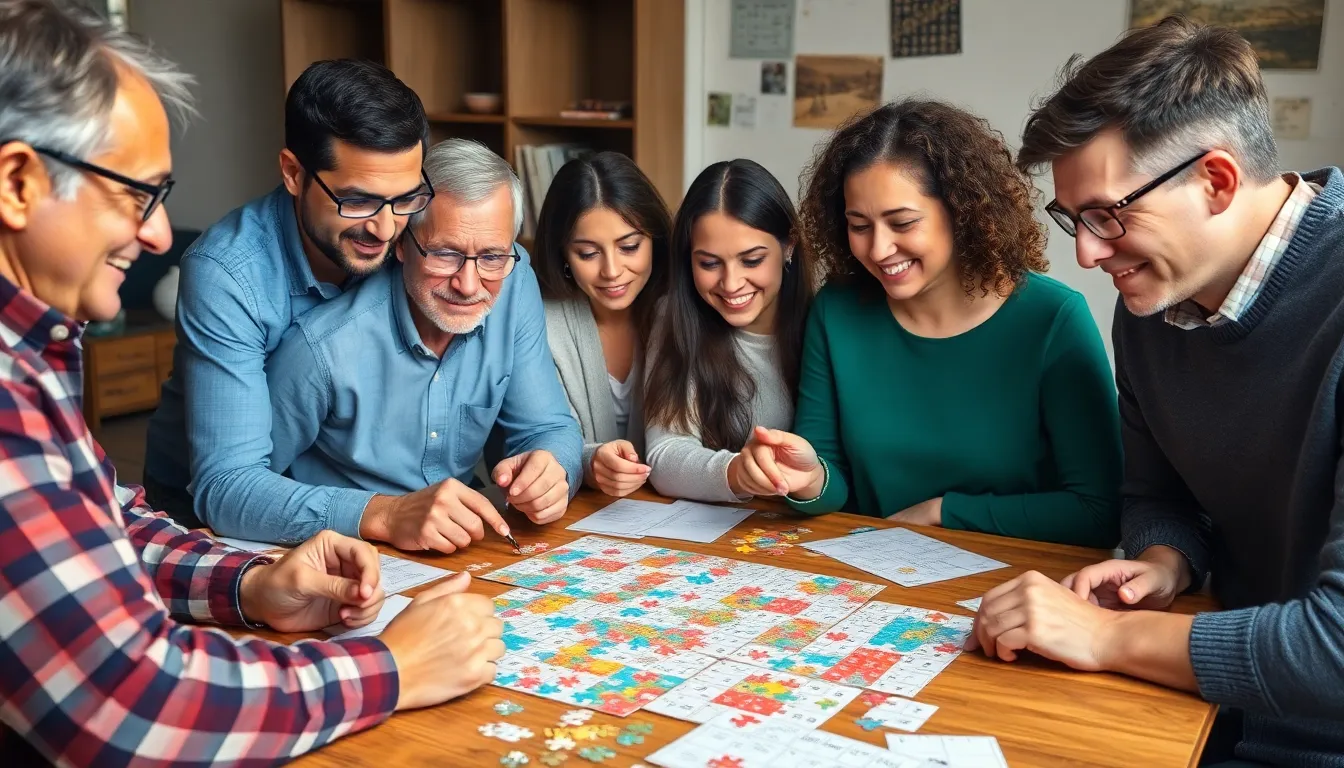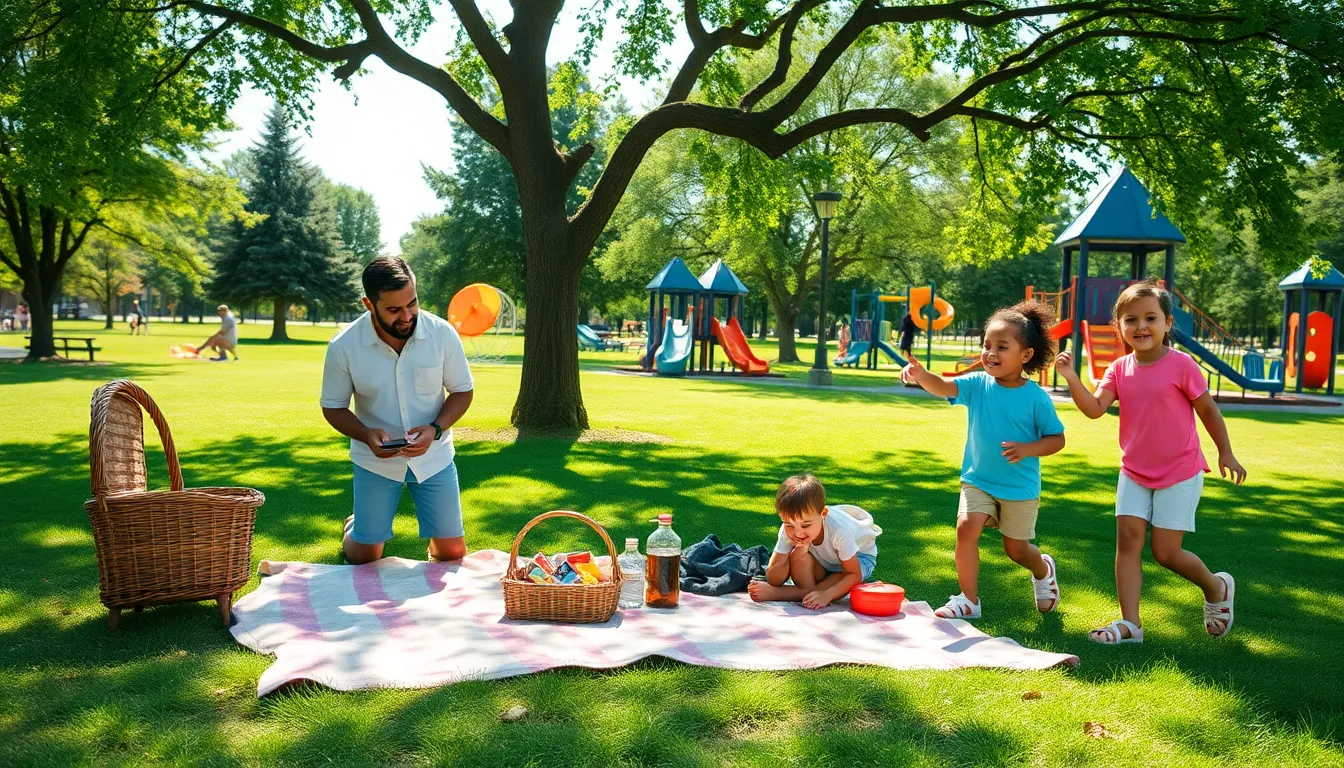In a world where distractions lurk around every corner, puzzle challenges offer a delightful escape. They’re not just brain teasers; they’re a fun workout for the mind that can turn even the most mundane day into an adventure. Whether it’s a jigsaw that leaves you questioning your life choices or a Sudoku that tests your sanity, these challenges are a perfect blend of entertainment and mental gymnastics.
Table of Contents
ToggleOverview of Puzzle Challenges
Puzzle challenges captivate individuals through their intriguing structures and varied formats. Engaging in puzzles like jigsaws, Sudoku, and crosswords can benefit cognitive abilities and enhance problem-solving skills. Each puzzle type offers unique interactions that stimulate mental faculties and promote focus.
Participants find enjoyment in overcoming intricate designs and complex questions, allowing them to escape everyday routines. Players often report increased satisfaction when completing these challenges, which can lead to a sense of accomplishment. These activities also encourage social interaction, as many enjoy solving puzzles in groups.
Various formats cater to diverse interests. Some may prefer visual puzzles, while others lean toward logical challenges. Puzzle challenges serve not just as solitary pursuits but also as community-building activities, fostering connections through shared experiences.
Moreover, many puzzle enthusiasts seek out tournaments and competitions to test their skills against others. Competitive events provide thrill and motivation, enhancing the challenge aspect while promoting a sense of camaraderie among participants. This dynamic environment enriches the overall puzzle-solving experience.
In addition to recreational benefits, ongoing engagement with puzzles can yield long-term cognitive advantages. Research indicates that regular participation may delay cognitive decline and improve memory retention. Given their multifaceted appeal, puzzle challenges remain a popular choice for mental exercise and enjoyable leisure activities.
Types of Puzzle Challenges
Puzzle challenges come in various formats, each designed to stimulate different cognitive skills and interests. Understanding these types can enhance the puzzle-solving experience.
Logic Puzzles
Logic puzzles require analytical thinking and deductive reasoning. Participants often encounter scenarios that involve a set of conditions to be interpreted and solved. Common variations include grid puzzles and logical deduction exercises. Engaging with these types develops critical-thinking skills, as players often need to eliminate possibilities and make inferences based on provided clues. Examples of popular logic puzzles include nonograms and Sudoku variations, appealing to both casual and seasoned solvers.
Word Puzzles
Word puzzles focus on language skills, challenging individuals with tasks that involve wordplay and vocabulary. Crossword puzzles represent a classic example where players fill blank squares with words based on provided clues, enhancing language comprehension. Word searches, anagrams, and cryptograms also fall under this category, offering a range of difficulty levels. Regular engagement with word puzzles enriches vocabulary and promotes linguistic agility, making them a favored choice for language enthusiasts.
Math Puzzles
Math puzzles incorporate numerical challenges that require mathematical reasoning and problem-solving abilities. These puzzles often include riddles, number sequences, and geometry problems. Engaging with math puzzles sharpens quantitative skills while making abstract concepts more tangible. Examples include magic squares and logic-based math riddles, appealing not only to math lovers but to anyone seeking a challenge. Practicing regularly with math puzzles can lead to improved numeracy and enhanced analytical capabilities.
Benefits of Engaging in Puzzle Challenges
Engagement in puzzle challenges offers numerous advantages that extend beyond simple entertainment. With a variety of benefits, participants experience cognitive growth, stress relief, and enhanced overall well-being.
Cognitive Skills Development
Puzzle challenges significantly improve cognitive skills. They stimulate critical thinking, enhancing analytical abilities and problem-solving skills. Engaging in logic puzzles requires individuals to interpret complex conditions accurately, sharpening their reasoning. Word puzzles, such as crosswords, develop vocabulary and linguistic agility, fostering communication skills. Math puzzles introduce numerical challenges that boost quantitative skills, making abstract concepts easier to grasp. Regular participation in these activities leads to better memory retention and mental agility, contributing to long-term cognitive health.
Stress Relief and Relaxation
Puzzle challenges also serve as effective stress relievers. Concentrating on a puzzle allows individuals to escape everyday worries, providing a welcome distraction. Many find the process of solving puzzles relaxing, as it encourages mindfulness and present-moment awareness. Engaging with puzzles enables deep focus, which diverts attention from stressors and enhances overall mental clarity. Completing a challenging puzzle not only brings a sense of accomplishment but also creates feelings of satisfaction and relaxation. This dual effect of enjoyment and relief helps promote emotional well-being in everyday life.
Tips for Tackling Puzzle Challenges
Engaging with puzzles requires a blend of strategy and insight. Success depends on utilizing effective approaches that enhance problem-solving capabilities.
Strategies for Success
Start by breaking down the challenge into smaller sections. Analyzing pieces individually makes it easier to spot connections. Familiarity with common patterns also helps streamline the process. Staying organized aids in tracking progress and minimizing confusion. Setting a timer can add motivation and focus, encouraging quicker thinking. Collaborating with others creates an exchange of ideas that may reveal new perspectives. Practicing regularly contributes to skill improvement and builds confidence.
Common Pitfalls to Avoid
Skipping critical details can hinder progress significantly. Failing to take breaks leads to frustration and mental fatigue. Overlooking the instructions may result in misunderstandings that complicate solving. Rushing through puzzles often causes missed connections and errors. Allowing distractions can derail concentration. Sticking solely to one type of puzzle limits overall skill development. Avoiding group dynamics may isolate potential insights from collaborative efforts. Recognizing these pitfalls helps maintain a steady approach to tackling challenges.
Conclusion
Puzzle challenges offer a unique blend of entertainment and mental stimulation that enriches daily life. They not only sharpen cognitive abilities but also foster social connections through collaborative problem-solving. Engaging with various types of puzzles can lead to significant improvements in critical thinking and creativity.
As individuals navigate through intricate designs and complex questions they experience a rewarding sense of accomplishment. The long-term benefits of regular puzzle engagement extend beyond mere enjoyment, promoting emotional well-being and cognitive health.
Whether tackling a logic puzzle or enjoying a word game the journey through these challenges is both fulfilling and beneficial. Embracing puzzle challenges can transform mundane moments into exciting opportunities for growth and connection.









